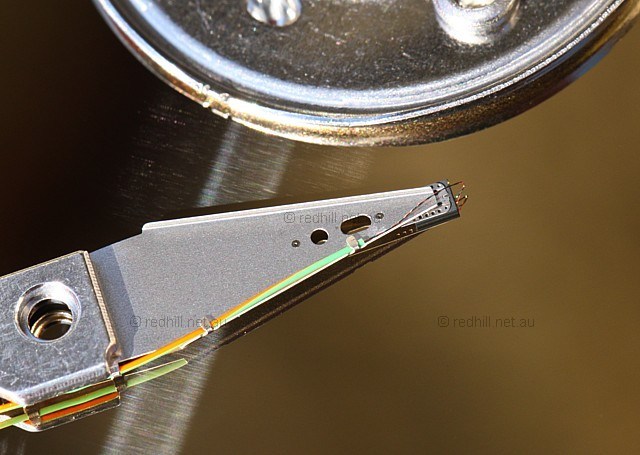
Photo: Red Hill.
Seagate Medalist 1276
As so often with Seagate's lower-end drives, the Medalist 1276 had a long market life. It arrived about the time that the high-speed Medalist SL disappeared, and it soldiered on until nearly everything else was substantially bigger and faster.
By the time the 1276 was nearing retirement, anything less than about 3GB was classed as entry-level, where speed was less an issue than cost. This meant that traded-in drives in this size range could often be faster than new ones — something that is almost never true of modern drives. This is one of the reasons why, back when redhill.net.au was more of a buying guide than the simple trip down memory lane it is today, I always used to mix old and new drives together on these pages. It made more sense that way: if you simply wanted reliable storage at reasonable cost, an entry-level new drive like the Medalist 1276 was an excellent choice. If you wanted maximum performance in this size range, and were on a modest budget, it was better to look for an older high-performance premium drive that had been traded-in (something like the Medalist SL or a Fireball).
| Performance | 0.83 | Reliability | AA1 |
| Data rate | 71.4 Mbit/sec | Spin rate | 5376 RPM |
| Seek time | 10.5ms | Buffer | 128k |
| Platter capacity | 641MB | Encoding | RLL |
| Form | 3½" half-height | Interface | IDE mode 4 |
| ST31276A | 1.282GB | 4 thin-film heads | **** |